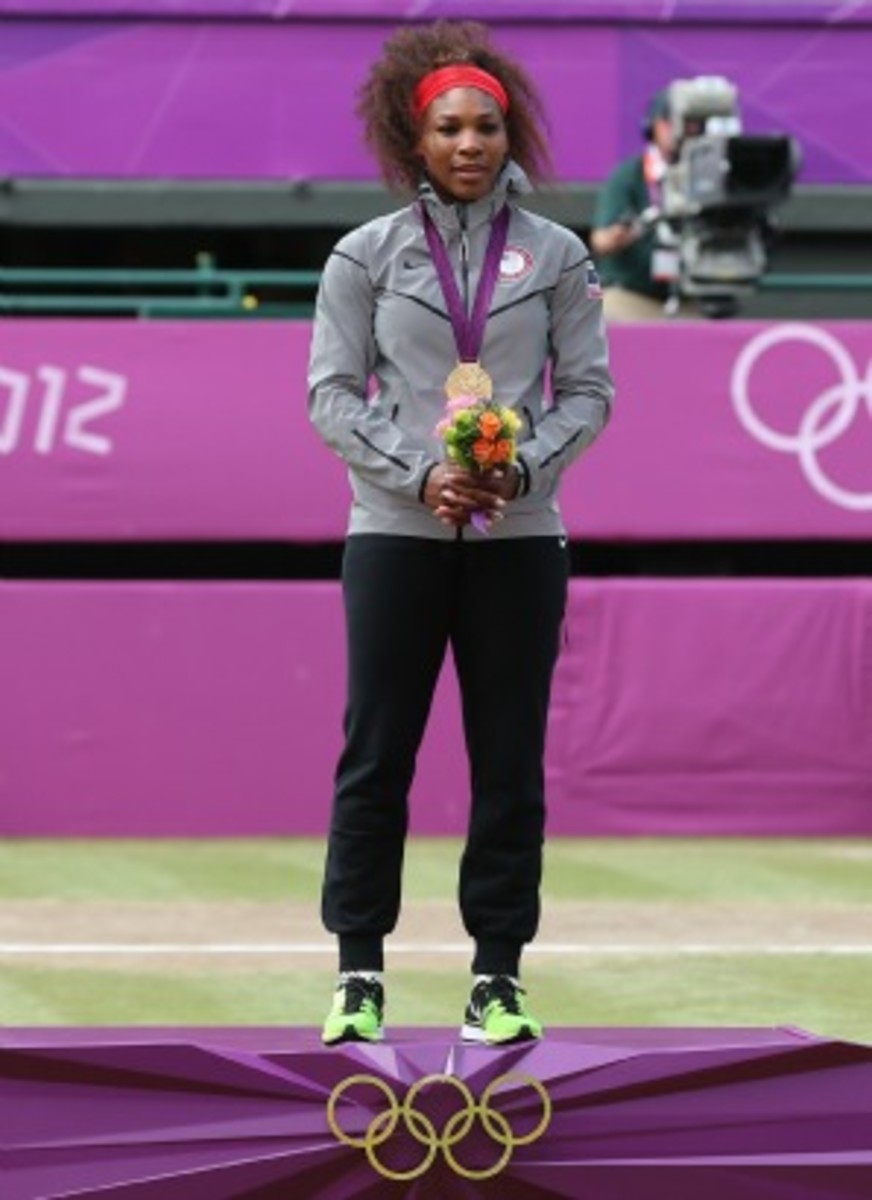Focused Serena dominant in gold medal victory over Sharapova
Over the course of her remarkable career, Serena achieved just about everything a tennis player possibly could. Singles titles at each of the four Majors, 14 in all. She picked up a baker's dozen of Grand Slam doubles titles. No.1 ranking? Check. Dozens of other titles at the WTA whistle stops? Check. A career that spanned more than a decade? Check. Generational wealth? Check. Her status as a Hall of Famer? It's so assured that, for the sake of the environment and all, let's not even bother printing up ballots.
Serena, though, has never before won an Olympic medal. Inasmuch as athletes have resumes, it was the only notably absent line. And given that this opportunity only presents itself every four years, if Serena, at age 30, didn't get one this summer, who knows if she ever would? For mortals, this scenario might bring with it pressure and anxiety. For Serena it just made it all the more determined. "I remember thinking, Serena, this is your best chance to win a gold medal," she said today. "Pull it together. I was thinking: you gotta do this." (Or as her sister Venus told me early in the week. "Oh, she is MO-tivated.")
And she tends to get what she wants. Four weeks after winning Wimbledon, Williams the Younger capped off six rounds of almost laughably dominant tennis by taking gold this afternoon at the All England Club. These weren't matches. They were tennis clinics. In a dozen sets, Serena lost 17 games. Total.
Maria Sharapova was today's victim. The Russian -- who won the French Open in June and would have been No.1 had she won today -- was transformed into a statuesque bystander. Still in lawnmower mode, Serena romped 6-0, 6-1. She not only caught up to every flat shot Sharapova sent over, but then redirected the ball with more force. Serving harder than most male players do, she initiated points with unreturnable offerings. She even showed off a little touch at the net, the match doubling as a warm-up for her doubles match later in the afternoon. (She does that, too.)
After the match, I ran into Tracy Austin. She just smiled and she shook her head.
Me: "What's so funny."Her: "You know what."Me: "That was a joke, right?"Her: "Unbelievable."Me: "Have you ever seen a player roll like that?"
Her: "I don't think so. I mean at this stage -- the Olympics, at the All-England Club. Against that opposition -- her last three opponents were the last three No.1 ranked players. I mean she didn't just beat them. She was dismissive."
Sharapova didn't seem to disagree. "There are things I could have done differently," she said. "But she was just too quick and powerful today." Asked about her level of dominance, Serena demurred. "I never feel invincible," she said. "But I do feel good about my game."
As she should. For much of the last decade, the WTA could be distilled to this: "Serena is the best in the business when she is willing and able and motivated." A year after a medical scare, she is able. And the motivation has never been more apparent. If her commitment to the tennis establishment and the various alphabet soup organizations can waver, her commitment to country is beyond question.
After closing out the match, fittingly, with an ace, she smiled and let out a yelp. She had picked up the only conceivable missing prize out there. Her tennis box set was complete. After indulging in a dance routine near the net ("West Coast," she described it. See: YouTube) she began jumping up and down, as if trying to reach the sky. She didn't miss by much.





